DEIF controllers boost critical power reliability at German hospital
Excellent components, good support, and fast delivery were the main reasons why German engineering company Leukhardt selected a DEIF power management solution. Leukhardt needed a new critical power control system for local hospital Sana Krankenhaus Bad Doberan, and DEIF delivered the performance required.
It is early morning in the town of Bad Doberan, a few kilometres west of Rostock in north-eastern Germany. In a small basement room at the local hospital, technician and project manager Falk Pautlitz from engineering company Leukhardt Schaltanlagen Systemtechnik GmbH presses a green button on a switchboard. The brightly coloured icons on four DEIF AGC 150 genset and mains controllers light up, and two 200 kW generators come to life with a roar: We are witnessing one of the monthly tests of the new critical power system at Sana Krankenhaus Bad Doberan.
For obvious reasons, the hospital cannot afford to lose power. “We have blood supplies that we need to conserve, and they must be kept cool,” explains Rene Weiss, technical manager at Sana Krankenhaus Bad Doberan. “There are also several types of medication that need to be refrigerated, and some of our patients are connected to life support machines; it would be very bad for them if the power disappeared.”
Reliability issues with old control system
On the morning of the test, the system effortlessly switches from mains to generator power. But even though uninterrupted power is essential, the critical power system at Sana Krankenhaus Bad Doberan did not provide the reliability needed until recently. The 25-year-old controllers and switchgear were simply not performing as they should.
“In 2019, Leukhardt took over the responsibility for maintaining the critical power system,” says Rene Weiss. “During maintenance, it was discovered that the system did not run as it should – when one generator did not work, both went out of service and did not produce any power. Leukhardt then went to work and suggested solutions for fixing the problem.”
The old control system was made by another manufacturer, and it was precisely the control system that was causing the problems, not the generators. It was prone to occasional switching issues that prevented it from producing and delivering the power needed. There were no spare parts anymore, and to make matters worse, there was no documentation of the existing system; Falk Pautlitz and his Leukhardt colleagues had to figure out how the existing system was built, and what could be done to replace it with something workable. During this process, Leukhardt contacted DEIF to discuss solutions.
Sana Krankenhaus Bad Doberan
Location: Bad Doberan near Rostock, Germany
Founded: 1996
No. of beds: 135
Medical specialties: geriatrics, radiology, pneumology, cardiology, and emergency response
Owner: Sana Kliniken AG
Solution developed in cooperation with DEIF
“We contacted DEIF while we were in the process of getting an overview of the task and during the planning stage,” says Falk Pautlitz. “We presented the issue and tried to find a system solution together. DEIF provided several suggestions, and we decided on one of these in cooperation with DEIF.”
The solution chosen was a DEIF power management system with two AGC 150 Mains and two AGC 150 Genset controllers working in parallel to provide redundancy, plus an ALC-4 load controller for load handling. The controllers communicate over a CAN bus connection and are mounted in an all-new switchboard that also includes DEIF power and voltage meters.
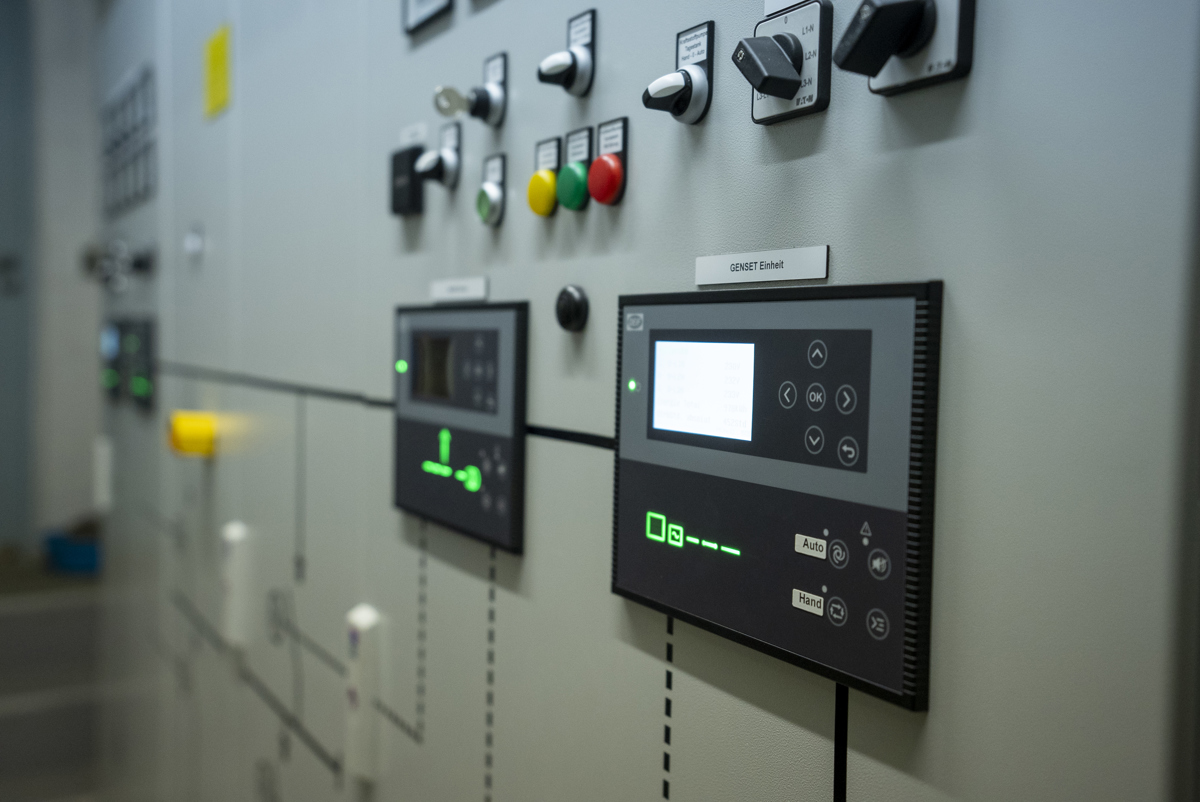
Redundancy and intelligent load management
“We decided on the DEIF solution with the AGC 150s because we have two generators and wanted to control and monitor each one individually,” explains Falk Pautlitz. “Also, we have start-up synchronisation that needs to work, and this system does it very well. We have a controller for each generator and one for each mains connection, and they work well together; they’re capable of communicating with each other. If there’s a defect for any reason, it doesn’t take out the entire system. Instead, each generator is capable of running on its own. That was really the most important reason.”
Leukhardt decided on a power management system because the company needed a way to manage the system load if one of the generators is defective. The critical power system is only capable of supplying enough power for the entire hospital if both generators are running. With intelligent load management, specific load groups can be temporarily disconnected and then reconnected when the second generator is back in operation.
Another factor in favour of the AGC 150-based solution was its ease of use. “The AGC 150 was mainly selected because of its modern appearance,” remarks Falk Pautlitz. “It’s got an active wiring diagram on the display, and I think it’s a little easier for the end users to handle compared to other systems.”
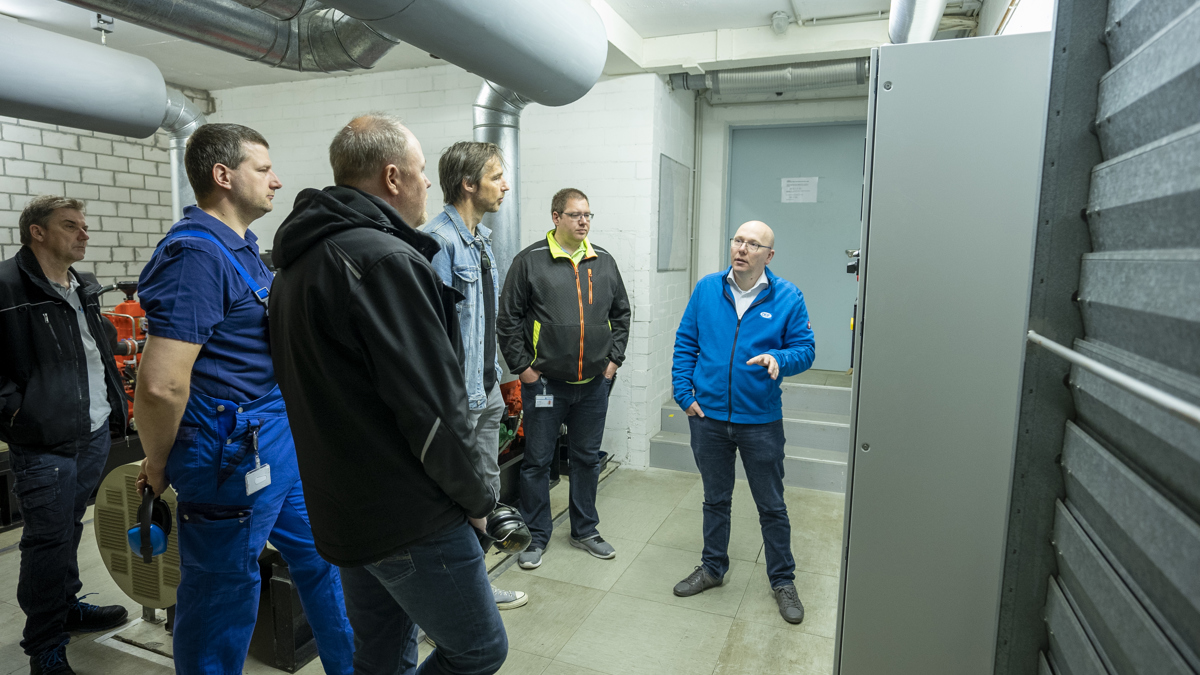
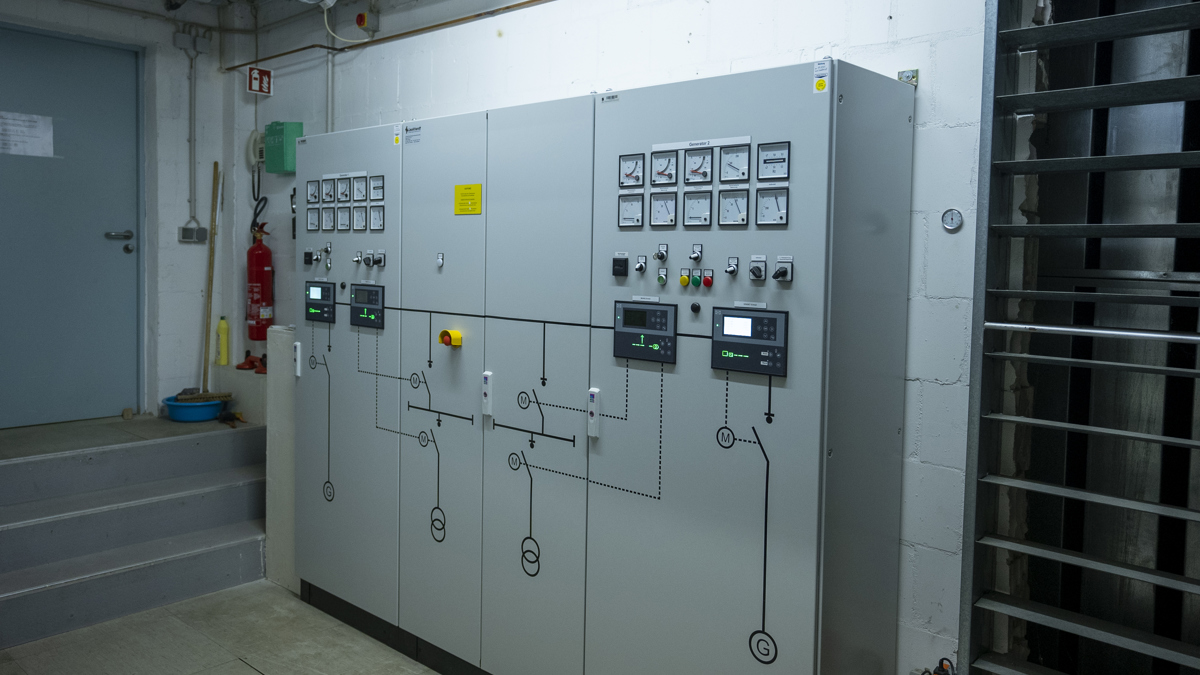
Voltage controller provides smooth synchronisation
When designing the new critical power control system, Leukhardt initially did not include a voltage controller to assist during synchronisation. However, when the company needed to ensure smooth synchronisation from mains to generators and vice versa, a DEIF DVC 550 digital voltage controller made all the difference.
“DEIF suggested using this digital voltage controller, and we presented the idea for the hospital, explaining that it meant that switching would work better and most importantly more smoothly, and we then added the unit,” says Falk Pautlitz. “The communication with the controller works wonderfully – it’s all very tidy.”
By default, the DVC 550 is compatible with a wide range of generators, thereby helping Leukhardt solve the problem with non-existing documentation for the old system.
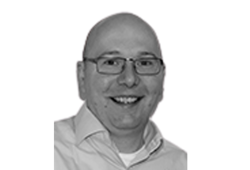
DEIF is in the advantageous situation that we can still deliver our controllers without any problems.
Ulli Zürn
Senior Application Engineer
+49 (0) 6251/1756-0 |Good support and fast delivery
In close cooperation with DEIF, Leukhardt got a total solution that fits the hospital’s requirements to the letter and which required little setup. “The components match one another, and we received a factory configuration,” remarks Falk Pautlitz. “There were no external components that we needed to connect in a complicated manner, and we didn’t need to set up interfaces from scratch. That was all done in advance, and it’s really practical and relatively simple.”
One main reason why the delivered solution fits the bill with a minimum of adjustments is that all questions and issues were dealt with quickly during development. DEIF Senior Application Engineer Ulli Zürn who worked closely with Leukhardt on the project explains that offering this kind of support is very important in today’s critical power market.
“Critical power solutions are offering ever more complex features because customers require ever higher availability,” he says. “We therefore offer our customers preconfigured systems as well as onsite support and commissioning.”
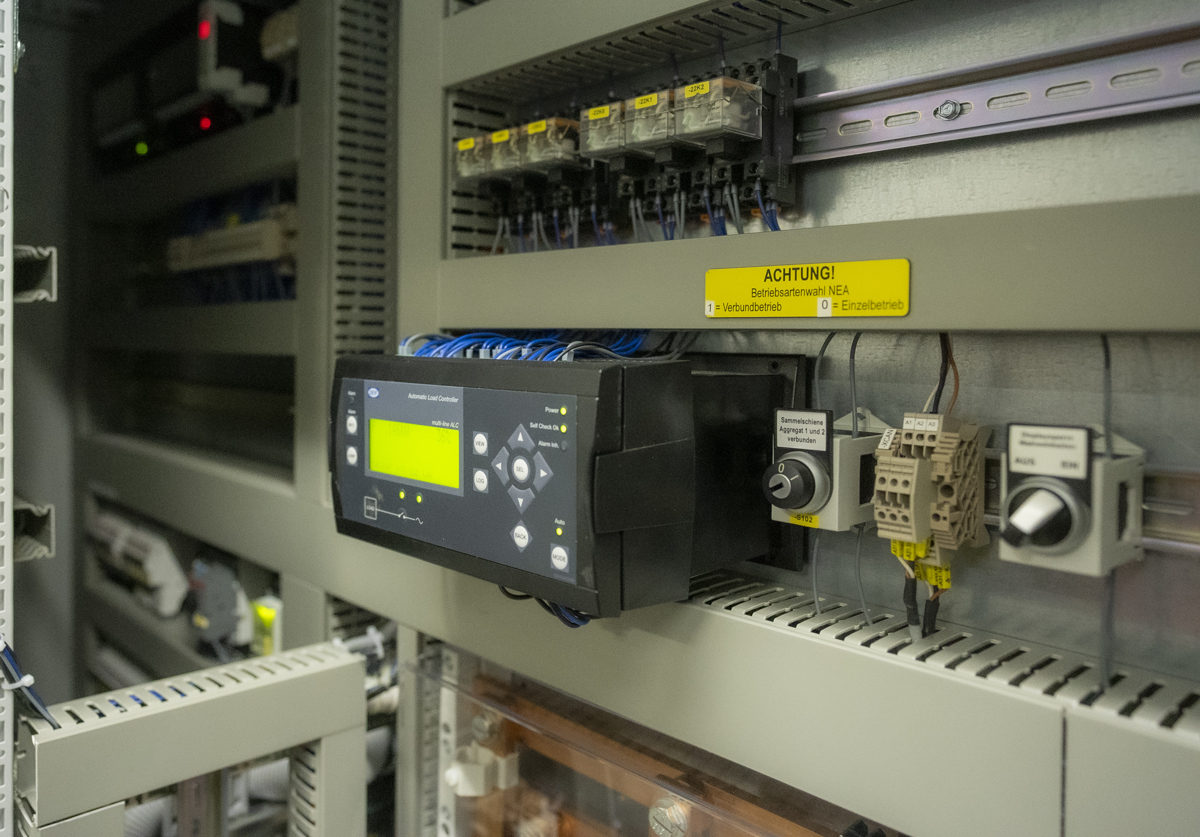
Falk Pautlitz is satisfied with the support he has received from DEIF: “When we had questions, for example in the planning stage when one of my colleagues was working with the wiring diagrams and wasn’t 100% sure how certain things could be solved best, those questions were answered immediately,” he says. “It’s really been a joint process. The project was executed really well without any problems.” DEIF was capable of delivering all components without delays; Ulli Zürn says that the company’s high delivery performance is the result of due diligence and careful logistics planning.
“DEIF is in the advantageous situation that we can still deliver our controllers without any problems,” he says. “When customers order controllers, we can still deliver like before the pandemic because of our extensive hardware stock.”
Constructive collaboration with all parties
From the initial planning stages through design, construction, and installation to the monthly tests, the project has been characterised by constructive and efficient collaboration. “The cooperation between the involved parties – the hospital, DEIF, and ourselves – was really good. It really worked well. Everything went smoothly without problems and there were no major issues,” says Falk Pautlitz, and Rene Weiss from Sana Krankenhaus Bad Doberan agrees.
“Our cooperation with Leukhardt and DEIF has been wonderful,” he says. “If we had any questions, Leukhardt and DEIF arrived to provide answers.”
Improved reliability and user-friendliness
Since the installation of the new control solution, the critical power system at Sana Krankenhaus Bad Doberan has performed very well. There have been no issues with the refurbished solution, and for the technical staff at Sana Krankenhaus Bad Doberan, the user friendliness of the DEIF AGC 150s is an added bonus.
“Operation is easy for us; we can check all necessary parameters,” says Rene Weiss. “We can handle some settings ourselves, and if something stops working, Leukhardt takes over monitoring and provides great support for us. The new system works much more reliably. If one generator goes offline now, the other one keeps working so we can still provide critical power.”
Leukhardt Schaltanlagen Systemtechnik GmbH
Headquarters: Schwerin, Germany
Main business areas: medium and low voltage switchgear, control technology, and service
No. of employees: 200
Founded: 2006
“We work with DEIF”
In the basement room at Sana Krankenhaus Bad Doberan, the test is completed. Hospital and Leukhardt staff watch in satisfaction as the DEIF AGC 150s effortlessly synchronise back to mains power, and the generators power down. The room falls quiet except for the airplane-like drone from the diesel engine turbochargers coasting to a standstill. The test was carried out at approximately 40% load; a strong indication that Sana Krankenhaus Bad Doberan now has a critical power system that can deliver the performance it was originally designed for in the 1990es but which it could not do until the installation of the new DEIF solution by Leukhardt.
“Our cooperation with DEIF has been excellent, I really must say,” concludes a satisfied Falk Pautlitz. “It really was a hand in hand job, and we’d do it again on other projects. For me, DEIF is a very good systems partner when it comes to critical power control. I can only say: excellent components, good support, fast delivery – these are the reasons why we say: ‘We work with DEIF’.”

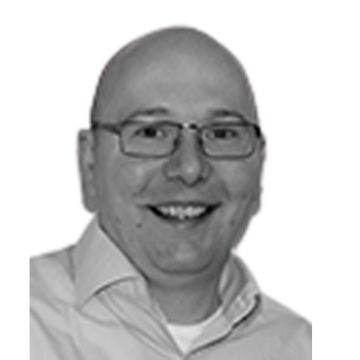
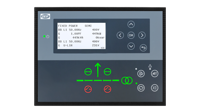
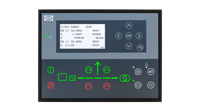
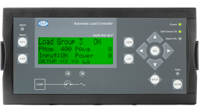
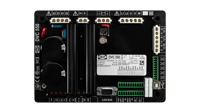
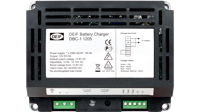
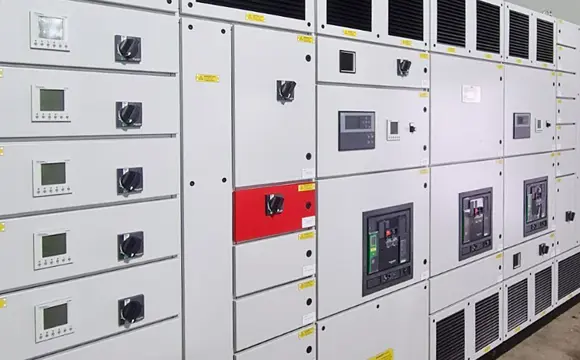
![Website Top Photo (1920X1080)[2596]](https://deif-cdn-umbraco.azureedge.net/media/nvwijjwt/website-top-photo-1920x1080-2596.jpg?rxy=0.3706277507528376,0.43083785290688836&width=580&height=360&v=1da9151d05104c0&v=9)
![AGC 150 Umbrella Umbraco[2224]](https://deif-cdn-umbraco.azureedge.net/media/n4ghkryv/agc-150-umbrella-umbraco-2224.jpg?width=580&height=360&v=1da9151cbeff490&v=9)